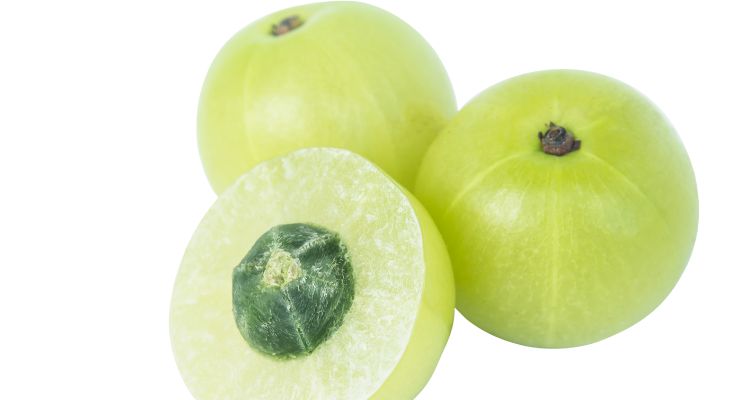02.08.23
Supplementation with an Indian Gooseberry extract standardized for high concentrations of glucogallin was linked to improvements in blood sugar and blood lipid concentrations in a group of 126 participants with hyperglycemia and high BMI.
In a 90-day, multicentric, randomized open trial published in Food & Function, an extract marketed by Sabinsa as Saberry was found to provide these clinically-significant benefits in a group of 126 participants.
The study consisted of three arms, in which participants either took a daily dose of one or two grams of Saberry, as well as a control group which received a standard treatment of metformin.
Both of the dosages of Saberry resulted in improvements in glucose and lipid metabolism based on the parameters of fasting and post-meal blood sugar levels, and blood concentrations of LDL, VLDL, and total cholesterol. The extract benefitted the participants in a dose-dependent manner with the two-gram daily dose resulting in 21.8% lower fasting blood sugar levels compared to 14.6% in the one-gram dosage by the end of the study period.
While the one-gram dose compared favorably with metformin results, the two-gram dose surpassed them, and similar trends were observed for both dose regimens for total cholesterol, LDL, VLDL, and triglyceride levels.
“Diabetes and dyslipidemia are well-known independent risk factors for atherosclerotic cardiovascular diseases. In diabetic patients, dyslipidemia is a major risk factor for macrovascular complications. Further, the presence of insulin resistance with dyslipidemia increases the risk for myocardial infarction,” the authors wrote.
“This study is perhaps the first to evaluate the clinical efficacy and safety of a standardized extract containing 10% BGG (beta-glucogallin) along with hydrolysable tannins. BGG was reported to be the major component isolated from E. officinalis fruits showing potent inhibition of human aldose reductase implicated in the development of secondary complications of diabetes […] The present data provide strong evidence that [Indian Gooseberry extract] at one gram and two grams per day is safe, well-tolerated, and exerted effective antidiabetic and lipid-lowering activities in diabetic dyslipidemia patients,” the authors concluded. “More importantly, [Indian Gooseberry extract] at a dose of 2 grams per day showed superior antidiabetic and anti-dyslipidemia activities compared to the pharmaceutical drug, metformin.”
In a 90-day, multicentric, randomized open trial published in Food & Function, an extract marketed by Sabinsa as Saberry was found to provide these clinically-significant benefits in a group of 126 participants.
The study consisted of three arms, in which participants either took a daily dose of one or two grams of Saberry, as well as a control group which received a standard treatment of metformin.
Both of the dosages of Saberry resulted in improvements in glucose and lipid metabolism based on the parameters of fasting and post-meal blood sugar levels, and blood concentrations of LDL, VLDL, and total cholesterol. The extract benefitted the participants in a dose-dependent manner with the two-gram daily dose resulting in 21.8% lower fasting blood sugar levels compared to 14.6% in the one-gram dosage by the end of the study period.
While the one-gram dose compared favorably with metformin results, the two-gram dose surpassed them, and similar trends were observed for both dose regimens for total cholesterol, LDL, VLDL, and triglyceride levels.
“Diabetes and dyslipidemia are well-known independent risk factors for atherosclerotic cardiovascular diseases. In diabetic patients, dyslipidemia is a major risk factor for macrovascular complications. Further, the presence of insulin resistance with dyslipidemia increases the risk for myocardial infarction,” the authors wrote.
“This study is perhaps the first to evaluate the clinical efficacy and safety of a standardized extract containing 10% BGG (beta-glucogallin) along with hydrolysable tannins. BGG was reported to be the major component isolated from E. officinalis fruits showing potent inhibition of human aldose reductase implicated in the development of secondary complications of diabetes […] The present data provide strong evidence that [Indian Gooseberry extract] at one gram and two grams per day is safe, well-tolerated, and exerted effective antidiabetic and lipid-lowering activities in diabetic dyslipidemia patients,” the authors concluded. “More importantly, [Indian Gooseberry extract] at a dose of 2 grams per day showed superior antidiabetic and anti-dyslipidemia activities compared to the pharmaceutical drug, metformin.”




























